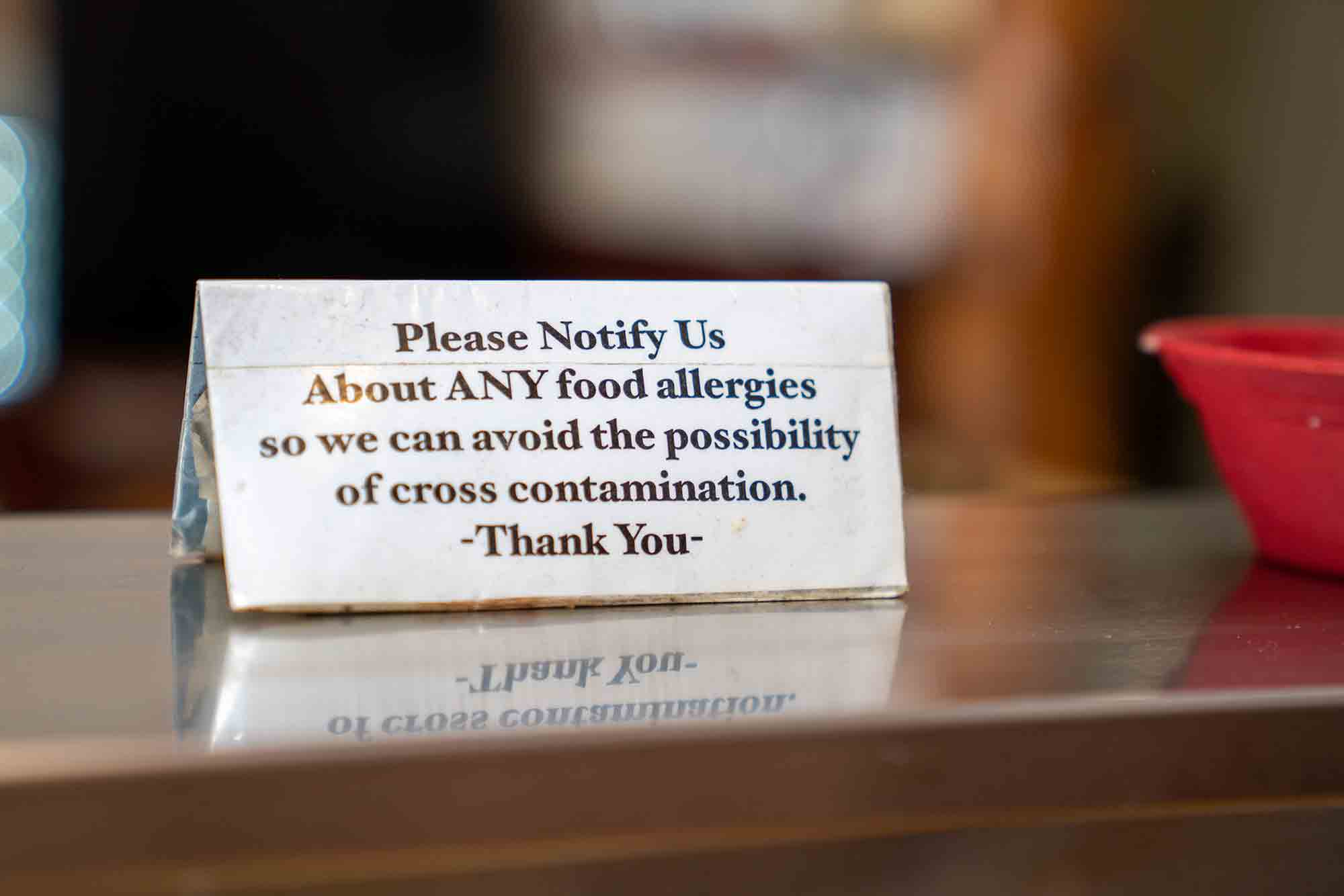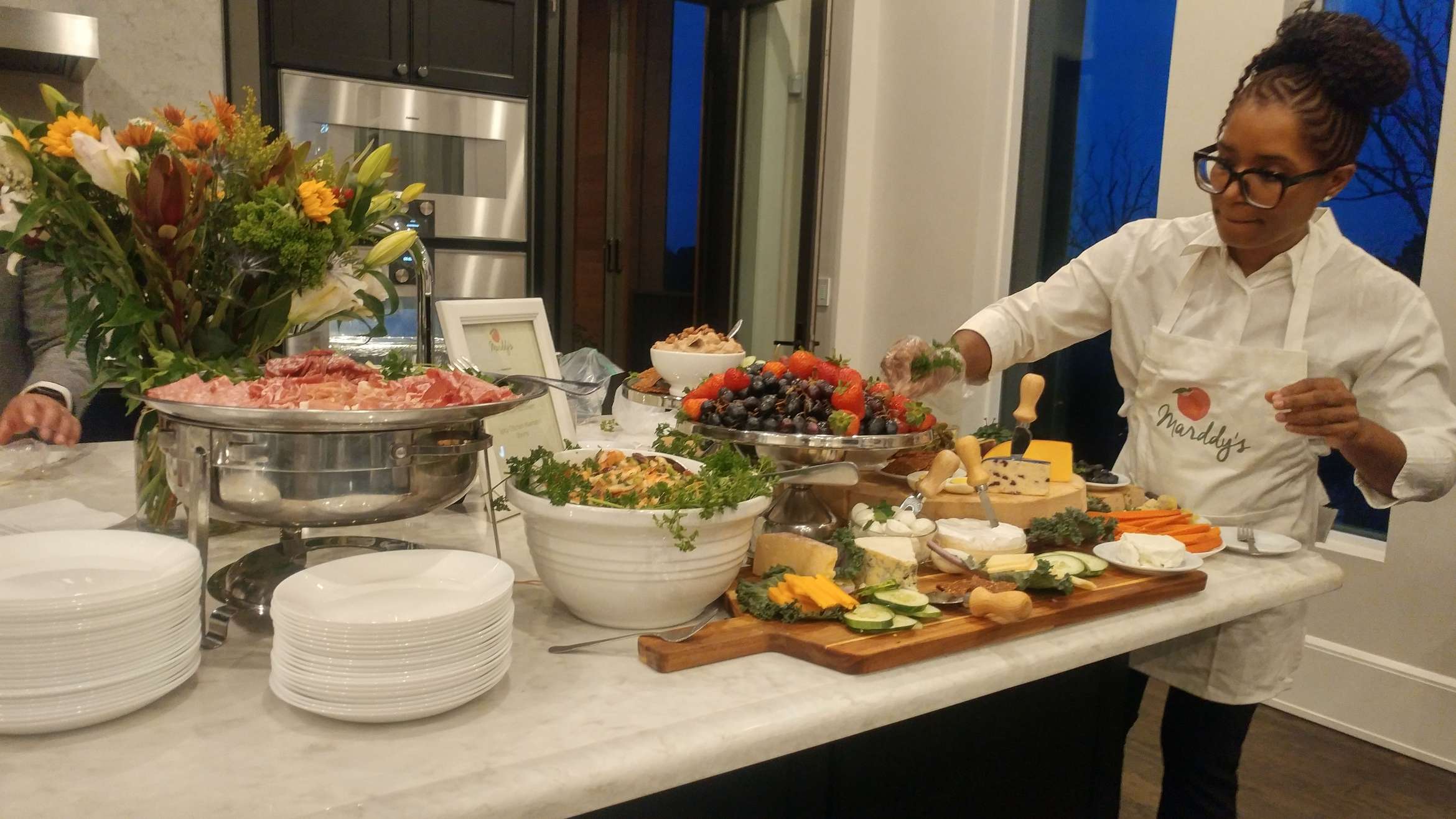Inclusive: The New Exclusive in Food Service
Eating at a Meeting Podcast Episode 86
 Inclusive: The New Exclusive in Food Service
Inclusive: The New Exclusive in Food Service
Heather Landex is Food Safety Expert, Inclusivity Consultant & Trainer for Restaurants & Food Service Industry in Denmark and across the European Union. In her new book, Inclusive: The New Exclusive in Food Service How the Food service Industry Can Stop Leaving Money on the Table,” she talks about how to earn more revenue while reducing risk. In this episode, Tracy and Heather chat about ways meeting professionals and food service providers can create more inclusive dining experiences so everyone can eat.
What do safe, inclusive & sustainable food and beverage experiences look like to you?
Food safety is not just about washing your hands… it’s not just common sense. To make someone with dietary preferences feel safe and confident to eat out requires understanding. This customer journey begins with the communication and information available online, can the customer see that they are able to eat at an establishment before ringing ahead or arriving at door? Are they considered with the menu or available information about ingredients? Are staff trained how to sign post them to the information, which questions to ask, which competences the establishment has, and doesn’t have. Food safety is a huge part of customer service. All too often service staff, or other reservation systems, are not suited to ordering allergy friendly, vegan or other (free-from) food, in a way that doesn’t remove doubt from the consumer. I believe food businesses should show off their food safety standards, and it absolutely has to include allergy management and consideration of how to make information about ingredients, cross contamination risks, and how to order effortlessly.
Do you have an example of a situation that negatively effected you and/or other individuals or groups’ food and beverage experience?
Many. Service staff often hand you a gluten free menu when you’ve asked about allergies. Or a vegan menu when you’ve asked about nuts. The terms non-dairy, milk-free and lactose-free are confused – sometimes with severe consequences. I have been told there was “nothing for me” in a bakery, which I asked about directly to the MD – the whole bakery was suitable for vegans (and lactose-free) except one type of bread which was on it’s own shelf.
What do you wish people knew about what you do?
I wish food businesses in general could see the value in serving these growing minorities. They are afraid of anaphylactic allergy sufferers but are not seeing the other 99% of people with allergies, intolerances or other reasons to avoid the known allergens. Even vegans and vegetarians can be made ill by consuming animal products (4 of which are allergens in the UK and EU).
I also wish people knew there are ways to be transparent, practical and provide great customer service without increasing risk.
I wish they could see that I can earn them 10% more revenue.
I wish they could see they have a legal, moral and business duty to serve people without discriminating.
The problem I suffer, is that the term “food safety” isn’t sexy. There is a lot of resistance to “vegans”, there is a irritation caused by people with “allergies”, like they doubt they have an allergy.
They immediately switch off, act badly or completely resist any help. I believe that comes from fear, overwhelm and complete undeniable ignorance (albeit-innocently naive).
Allergy management and control of contamination are absolute necessities for any food business. They are also profitable, marketable and exclusive qualities. They just don’t see it as they believe it is a huge minority. “This wasn’t a thing 10 years ago”.
What is a best practice you use/or have seen to create safe and inclusive F&B experiences?
The capabilities of a kitchen can be improved in advance. I pointed out to a fine dining restaurant that their afternoon tea only had 1 item for a vegan. How likely is it a vegan would come for afternoon tea? I also pointed out they had 3 vegan desserts on their lunch menu, the dinner menu was half vegan, but no vegan website, review site or even Google, new they had vegan option…..sounds negative, right? 2 days later – they had a 14 allergy friendly vegan afternoon tea available.
I wouldn’t advise a dish needs to be 14 allergen free – allergy sufferers probably want the other ingredients. Gluten free and vegan is great if it is naturally both – but I always recommend “can be made gf” or “can be made vegan”. Having an allergy friendly vegan option is a very good place to start.
One example is a filterable online menu. I can put in vegan – no milk may contains, and still eat from every section of the menu. The option to also be “gf” was there too – they just switch the bread. The key element is – they had a dedicated fryer for vegan and gluten free elements of main dishes. Complete separation was the enabling aspect of their menu.
What is your favorite food and your favorite drink?
I’ve just had a vegan gluten free cheesecake from a tiny plantbased cafe called Kaf.
I’m also a bit fan of Nicecream – a plantbased ice cream parlour – they have excellent waffle cones.
I also like brocoli, avocados, nuts and coffee (oat milk). As a family we have an bit of an obsession with fajitas.
I’m vegan – I obviously eat loads of hummus.
Links:
Connect with Heather — Website | Facebook | LinkedIn | Instagram
Check out other featured guests on the Eating at a Meeting podcast
Eating at a Meeting is part of the Nitty Grits Podcasts network.






